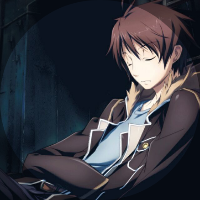本文阅读之前,需要了解ConstraintLayout的使用!
本系列以往文章请查看此分类链接Jetpack compose学习
引入依赖
implementation("androidx.constraintlayout:constraintlayout-compose:1.1.0")
可在下方链接查看官方的最新版本
Constraintlayout | Jetpack | Android Developers
简单示例
在compose里的约束布局,需要先通过createRef()方法创建ref对象,之后通过Modifier.constrainAs()来进行对应的约束对齐,如下简单例子:
2个组件,图片和文本,文本与图片的top和bottom对齐,位于图片的右侧,间距16dp
注意: createRef(),createRefs(),Modifier.constrainAs()这个ConstraintLayoutScope作用域才能使用!下面的其他的方法也是如此,之后不再赘述!
ConstraintLayout(modifier= Modifier
.fillMaxWidth()
.height(100.dp)
.background(Color.Blue)) {//这里是ConstraintLayoutScope作用域
//createRef
//val portraitImageRef = remember {
// createRef()
//}
//val userNameTextRef = remember {
// createRef()
//}
//这个可以快速创建多个引用(但一次最多只能支持16个变量!)
val (portraitImageRef,userNameTextRef) = remember{ createRefs()}
Image(painter = painterResource(id = R.drawable.ic_auto), contentDescription =null ,modifier=Modifier.size(50.dp).constrainAs(portraitImageRef){
top.linkTo(parent.top)
start.linkTo(parent.start)
bottom.linkTo(parent.bottom)
})
Text("myname",modifier=Modifier.constrainAs(userNameTextRef){
top.linkTo(portraitImageRef.top)
//还可以设置margin和goneMargin,这里我只设置了margin属性
start.linkTo(portraitImageRef.end, margin = 16.dp)
bottom.linkTo(portraitImageRef.bottom)
})
}
constrainAs的函数体中,我们还可以设置当前组件的width和height属性,具体有下面几个选项
| Dimension Type | Description |
|---|---|
wrapContent() |
实际尺寸为根据内容自适应的尺寸 |
matchParent() |
实际尺寸为铺满整父组件的尺寸 |
fillToConstraints() |
实际尺寸为根据约束信息拉伸后的尺寸 |
preferredWrapContent() |
如果剩余空间大于根据内容自适应的尺寸时,实际尺寸为自适应的尺寸。如果剩余空间小于内容自适应的尺寸时,实际尺寸则为剩余空间的尺寸。 |
ratio (String) |
根据字符串计算实际尺寸所占比率,例如 "1:2" |
percent (Float) |
根据浮点数计算实际尺寸所占比率 |
value (Dp) |
将尺寸设置为固定值 |
preferredValue (Dp) |
如果剩余空间大于固定值时,实际尺寸为固定值。如果剩余空间小于固定值时,实际尺寸则为剩余空间的尺寸。 |
一个简单示例(某个组件占满剩余宽度):

ConstraintLayout(modifier= Modifier
.fillMaxWidth()
.height(100.dp)
.background(Color.Blue)) {
val (tv1Ref,tv2Ref) = remember{ createRefs()}
Text("一个字",modifier=Modifier.constrainAs(tv1Ref){
top.linkTo(parent.top)
start.linkTo(parent.start)
})
Text("右侧文本内容",modifier=Modifier.constrainAs(tv2Ref){
start.linkTo(tv1Ref.end)
end.linkTo(parent.end)
//占满剩余空间,实际等同于普通约束布局中,给width属性设置为0dp
width = Dimension.fillToConstraints
}.background(Color.Yellow))
}
除了上面几个start.linkTo,还有基线的对齐
baseline.linkTo(parent.baseline)
动态更改约束条件
除了上面说到的createRef方法,我们还可以通过Modifier.layoutId(id)和createRefFor(id)来联用进行创建ref对象
ConstraintSet对象就表明了当前的布局里的各组件的对齐关系,我们只需要构造ConstraintLayout的时候,传递此对象即可达到动态更新约束条件的效果!
下面是一个简单的示例:
private fun decoupledConstraints(margin: Dp): ConstraintSet {
return ConstraintSet {
val button = createRefFor("button")
val text = createRefFor("text")
constrain(button) {
top.linkTo(parent.top, margin = margin)
}
constrain(text) {
top.linkTo(button.bottom, margin)
}
}
}
@Composable
fun SettingPage(modifier: Modifier = Modifier) {
val constraints = decoupledConstraints(margin = 32.dp)
ConstraintLayout(constraints) {
Button(
onClick = { /* Do something */ }, modifier = Modifier.layoutId("button")
) {
Text("Button")
}
Text("Text", Modifier.layoutId("text"))
}
}
Barrier
平时在约束布局,不是很常用这个,一般用的GuideLine多些,不过也是记录下
这个需要依托存在的组件才能创建
ConstraintLayout{
val (tv1Ref,tv2Ref,iv1Ref) = remember{ createRefs()}
//创建位于组件右边的一个屏障
val barrier = createEndBarrier(tv1Ref,tv2Ref)
Text("一个字",modifier=Modifier.constrainAs(tv1Ref){
top.linkTo(parent.top)
start.linkTo(parent.start)
})
Text("十四个字",modifier=Modifier.constrainAs(tv2Ref){
top.linkTo(tv1Ref.bottom)
start.linkTo(tv1Ref.start)
})
//image始终位于2个文本的最右边(以最长文本为准)
Image(painter = painterResource(id = R.drawable.ic_auto), contentDescription =null,modifier=Modifier.size(50.dp).constrainAs(iv1Ref){
start.linkTo(barrier)
} )
}

createEndBarrier方法即在组件的右边位置创建屏障,除此之外还有其他3个方向的
createStartBarrier()createTopBarrier()createBottomBarrier()
GuideLine
引导线可以通过createGuidelineFromTop()方法直接创建,个人一般用此来进行百分比宽度等划分,然后让组件占满
于上面一样,还有其他方向,这里就不补充了,就是换个名字,代码提示直接可以搜到了
方法可接受一个0-1f范围之间的百分比或者固定的偏移量dp,如下面例子:
val guide = createGuidelineFromTop(0.2f)
val guide = createGuidelineFromTop(20.dp)
一个完整使用示例:

ConstraintLayout(modifier= Modifier
.fillMaxSize()
.background(Color.Blue)) {
val (tv2Ref) = remember { createRefs() }
val guide = createGuidelineFromTop(0.2f)
Text("底下占满",modifier= Modifier
.constrainAs(tv2Ref) {
top.linkTo(guide)
bottom.linkTo(parent.bottom)
width = Dimension.matchParent
height = Dimension.fillToConstraints
}
.background(Color.Yellow))
}
Chain
熟悉约束布局使用都知道这个了,有水平或垂直2种,然后ChainStyle类型有3种,这里不赘述了
createVerticalChain()createHorizontalChain()
createVerticalChain(imageOneRef, imageTwoRef, chainStyle = ChainStyle.Spread)



评论区